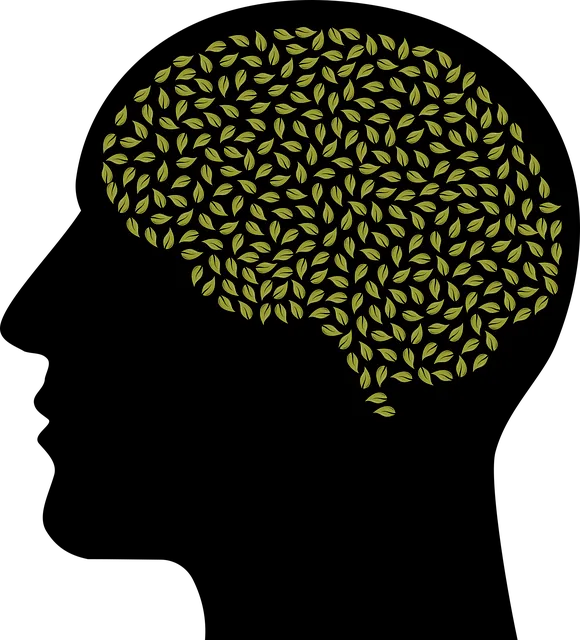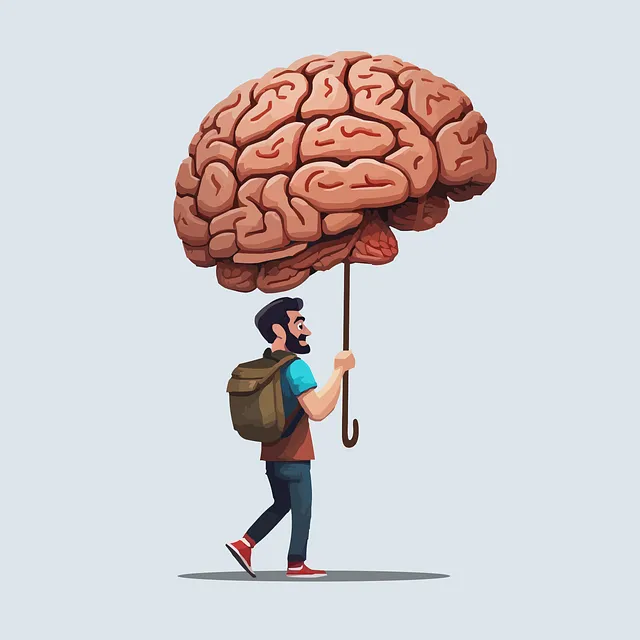The Centennial Kaiser Permanente behavioral health services are at the forefront of mental health education, prioritizing early intervention and evidence-based strategies for managing common issues like anxiety. Their programs combine workshops, therapy, and personal narratives to engage participants effectively. Interactive learning, including group discussions and role-playing, enhances knowledge retention and skills like stress management. Destigmatizing mental illness through open dialogues, information sharing, and empathy-building strategies fosters a supportive society. Evaluating program effectiveness through KPIs, surveys, check-ins, and interviews ensures continuous improvement based on best practices and participant needs.
Mental health is a vital aspect of overall well-being, yet it often goes overlooked. This article explores the design of comprehensive mental health education programs, a crucial initiative by organizations like Centennial Kaiser Permanente behavioral health services. By understanding the pressing need for such programs, we can create effective structures, engage participants through interactive learning, dispel stigma, and continually evaluate and adapt our approaches to ensure optimal benefits.
- Understanding the Need for Mental Health Education
- Designing an Effective Program Structure
- Incorporating Interactive Learning Strategies
- Addressing Stigma and Promoting Awareness
- Evaluating and Adapting the Program's Success
Understanding the Need for Mental Health Education

In today’s fast-paced world, mental health has emerged as a paramount concern, underscoring the imperative need for comprehensive education programs. Initiatives like the Centennial Kaiser Permanente behavioral health services play a pivotal role in promoting well-being and tackling prevalent issues such as anxiety relief, emotional regulation, and stress management. These services recognize that educating individuals about mental health fosters a more supportive and understanding society. By integrating evidence-based practices and strategies, educational programs can empower people to recognize and address their own mental health concerns early on, thereby preventing escalation and promoting healthier lifestyles.
Mental health education programs serve as a game-changer in navigating the complex landscape of emotional well-being. They provide individuals with the tools necessary for effective stress management, enabling them to lead more fulfilling lives. In light of the growing awareness about mental health challenges, such programs are not just desirable but essential, ensuring that folks have access to knowledge and resources to maintain their sanity amidst life’s hustle and bustle.
Designing an Effective Program Structure

When designing a mental health education program like those offered by Centennial Kaiser Permanente behavioral health services, it’s crucial to structure it in a way that facilitates meaningful engagement and lasting impact. A well-rounded program should include a mix of educational workshops, interactive activities, and personal narratives to cater to diverse learning styles. For instance, incorporating Emotional Healing Processes through mindfulness exercises or group therapy sessions can create safe spaces for participants to explore their emotions.
Additionally, addressing the pervasive issue of Mental Illness Stigma Reduction Efforts is vital within these programs. Through informative presentations and open discussions, participants can gain insights into various mental health conditions, fostering empathy and breaking down barriers. Trained facilitators should guide conversations on how to offer supportive environments and navigate challenging behaviors, ensuring that the program equips individuals with the skills to provide Trauma Support Services effectively.
Incorporating Interactive Learning Strategies

Incorporating interactive learning strategies is a key aspect of designing an effective mental health education program, particularly when aiming to enhance the well-being of employees at Centennial Kaiser Permanente behavioral health services. These strategies encourage active participation and can significantly improve knowledge retention and skill development. For instance, group discussions, role-playing exercises, and case studies allow individuals to apply learned concepts in realistic scenarios, fostering a deeper understanding of complex issues like stress management and anxiety relief.
Social Skills Training is another beneficial component that can be integrated through interactive methods. By facilitating peer interactions and providing opportunities for practice, participants can build confidence in communicating effectively, managing conflicts, and connecting with others—all essential skills for maintaining good mental health. These dynamic approaches not only make education engaging but also ensure that knowledge gained translates into practical actions, ultimately supporting the holistic well-being of the workforce at Centennial Kaiser Permanente.
Addressing Stigma and Promoting Awareness

At Centennial Kaiser Permanente behavioral health services, addressing stigma and promoting awareness are key components of our mental health education program design. Stigma often acts as a barrier to seeking help, perpetuating a cycle of isolation and exacerbating mental health challenges. Through innovative programs like Mental Wellness Coaching Programs Development, we aim to destigmatize mental illness by fostering open dialogues, providing accurate information, and encouraging early intervention.
Our approach includes incorporating Empathy Building Strategies into the curriculum to equip participants with the skills to understand and support peers facing mental health struggles. By promoting empathy, we create a more inclusive environment where individuals feel seen, heard, and valued. This holistic strategy ensures that our programs not only educate but also inspire positive change, ultimately enhancing the effectiveness of Risk Assessment for Mental Health Professionals and fostering better outcomes for all involved.
Evaluating and Adapting the Program's Success

Evaluating the success of a mental health education program is an iterative process that requires continuous assessment and adaptation to meet the evolving needs of participants. At Centennial Kaiser Permanente behavioral health services, we utilize a multi-faceted approach, combining quantitative data analysis with qualitative feedback mechanisms. This involves tracking key performance indicators (KPIs) such as attendance rates, engagement levels, and post-program surveys to gauge immediate impact. Additionally, our team conducts regular check-ins and interviews with participants to gain insights into the program’s effectiveness from their perspective.
Through this holistic evaluation process, we identify areas of excellence and pinpoint aspects that require refinement. For instance, the Mental Wellness Podcast Series Production has been a game-changer in reaching a wider audience, while the Mind Over Matter Principles have resonated deeply with many participants. Communication Strategies, integrated throughout the program, have enhanced engagement and facilitated open discussions. By regularly adapting the curriculum based on these insights, we ensure that our programs remain relevant, impactful, and aligned with best practices in mental health education.
Mental health education programs, as exemplified by the innovative models at Centennial Kaiser Permanente behavioral health services, are transformative tools for fostering well-being. By integrating structured learning, interactive engagement, and stigma-busting initiatives, these programs empower individuals to recognize and manage their mental health effectively. Continuous evaluation and adaptation ensure that such educational endeavors remain relevant and impactful in a dynamic societal landscape. Through dedicated implementation, we can create a more informed and supportive community, ultimately enhancing overall mental wellness on a grand scale.






